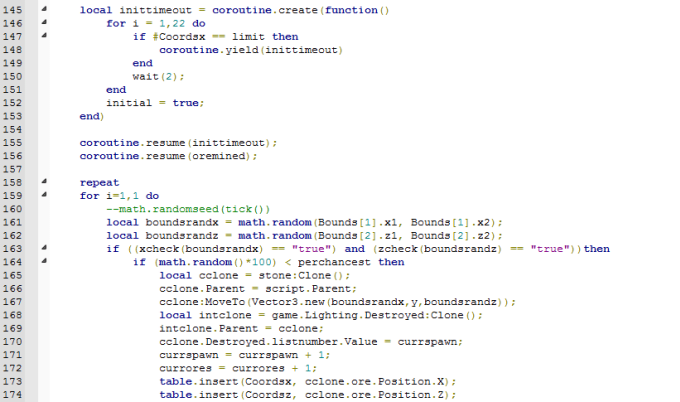

It's an easier way for you to reuse the data in other scripts, and you can store tables and functions.I’m currently trying to make a minigame where, using math.random, cylinders will appear in random spots, and you must touch them to make another one spawn, and it should keep going. Object or reuse the same data for different objects, store the data in

If you want to modify the same data for multiple copies of the same They also don't store tables or functions. However, both approaches are troublesome if you want to add or modify dozens of objects or data values. To associate data with individual objects, you can assign attributes to them or create Configuration folders with value objects such as StringValue or IntValue. By incorporating these patterns into your development, you can avoid common pitfalls as your Roblox experience grows in size and complexity. Module scripts have some common patterns that you can use to simplify your code and provide more flexibility over the features Roblox Studio provides. If you require() a ModuleScript from both sides of the client-server-boundary, such as in a Script and a LocalScript, then the ModuleScript returns a unique reference for each side. The module itself doesn't run multiple times. Calling require() again returns the exact same reference, meaning that if you modify a returned table or Instance, subsequent require() calls return that modified reference.

When you call require() on a ModuleScript, it runs once and returns a single item as a reference. Local PickupManager = require (ReplicatedStorage:WaitForChild( "PickupManager" ))


 0 kommentar(er)
0 kommentar(er)
